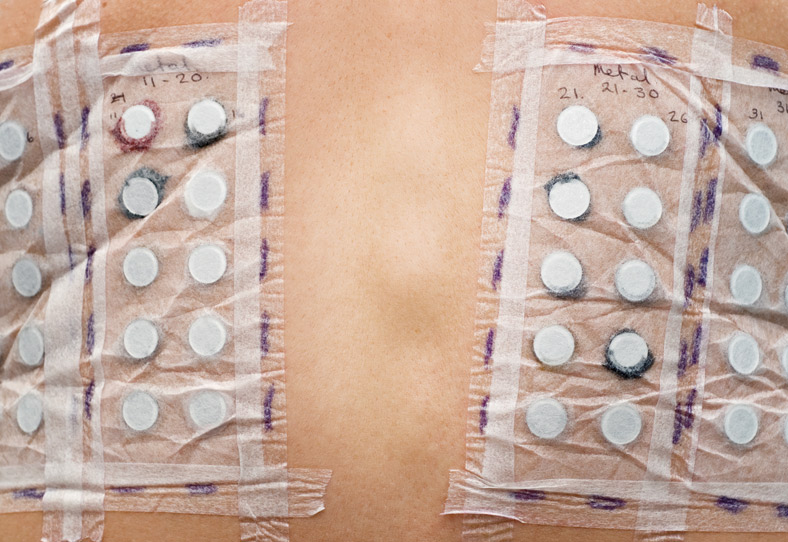The American Academy of Allergy, Asthma & Immunology reports that skin allergies account for approximately 5.7 million doctor visits each year. The allergic reactions that occurs when your immune system has an unusual reaction to a harmless substance is called allergic contact dermatitis. Common signs of a skin allergy include rash, itching, redness, swelling, raised bumps and scaly or cracked skin.
To pinpoint the cause of your itchy epidermis, your doctor may recommend an allergy patch test. Unlike a skin prick test, which is usually performed on the forearm using tiny needles called lancets, these tests use patches with small amounts of allergens applied to them that are then placed on your back or arm. During a patch test, your skin may be exposed to up to 30 different substances that may cause an allergic reaction. After 48 hours the patches are removed, and your doctor will look for any irritated skin that may indicate an allergy. Patch tests can detect a delayed allergic reaction that may take several days to show up.
If you do have positive allergic reactions, it’s important to note the cause and familiarize yourself with any additional names that the allergen may go by. This will make it easier to avoid products in which the allergen is present.
Related articles:
Can Foods That Are High in Zinc Keep You Healthy?
Banish Belly Fat With These Must-Eat Foods
Learn How to Grow Your Own Herb Garden!
Try Turmeric! The Secret Superfood

